
Fight to Landmark Last Remaining NYC House of Walt Whitman in Brooklyn at 99 Ryerson Street Continues

Less than two blocks from the Brooklyn Navy Yard, on a street lined with rowhouses of many sizes and styles, sits an unassuming, mundane aluminum-sided townhouse that hides a rich history. 99 Ryerson Street was a pivotal residence of illustrious American poet, Walt Whitman, whose ground-breaking poetry collection Leaves of Grass was published while he lived here with his brother and parents from 1855 to 1856. While living at this address, he also worked on the second edition of Leaves of Grass, which includes the first version of the poem “Crossing Brooklyn Ferry,” one of Whitman’s most well-known works. It is also the last remaining home of the poet in New York City – all the rest have been demolished.
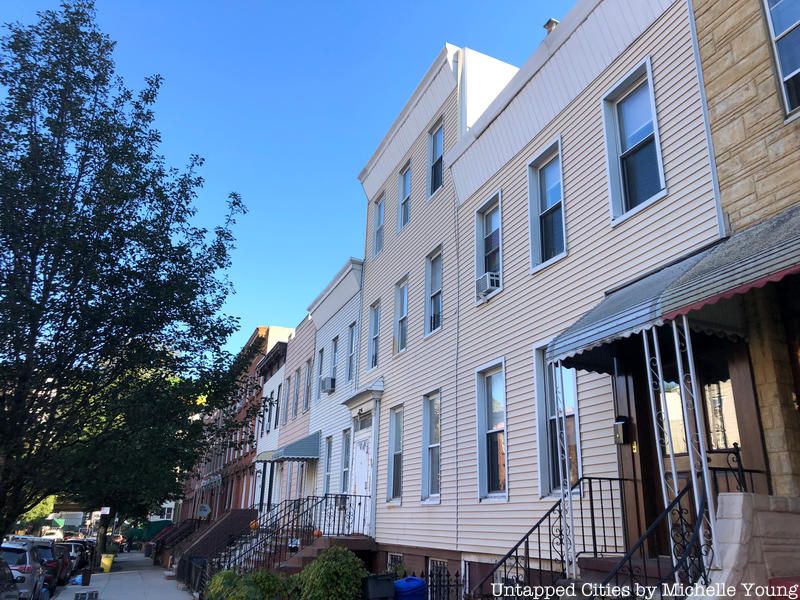
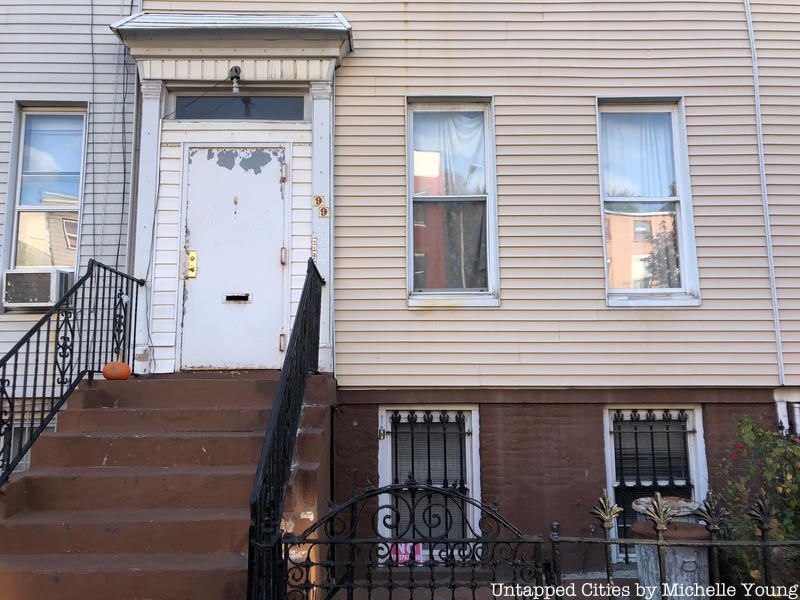
Unlike other poets of his generation who were raised in genteel society, Whitman was born to a working class family on Long Island. By the age of four, his family moved to Brooklyn where they would move from house to house, building new houses as investments or overseeing construction. His formal schooling ended by age eleven, whereupon he started working. This home, built for mechanics and tradesmen, is representative of the type of house Whitman and his family would have lived in and worked on, and in fact, “this was the first house in a long series where the family moved into an already constructed house,” says Brad Vogel, the Executive Director of the New York Preservation Archive Project who founded the Coalition to Save Walt Whitman’s House. The group has been campaigning for the landmarking of 99 Ryerson Street at both the city and state level, but so far has met with resistance from the New York City Landmarks Preservation Commission which declined to designate it in 2017.
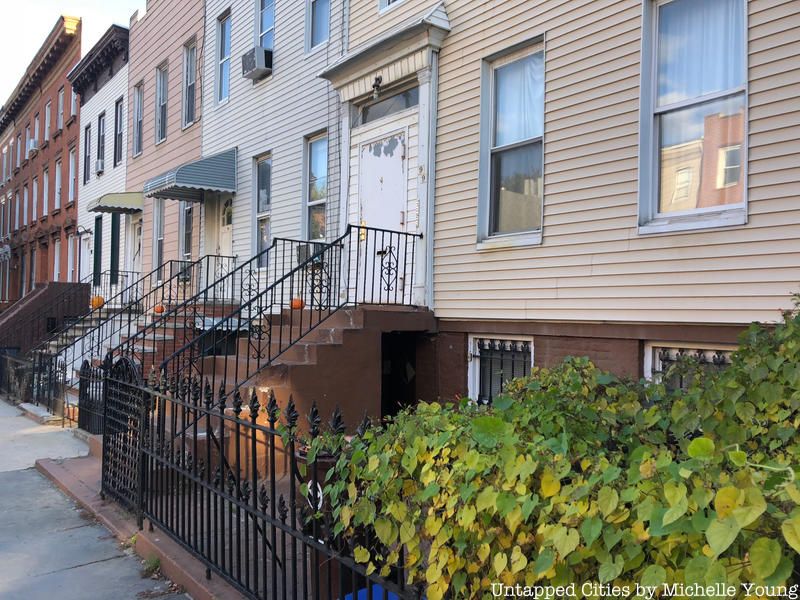
But Vogel, with support from organizations like the Historic Districts Council, The Walt Whitman Project, the LGBT Historic Sites Project, and others contends that not only is the building culturally significant, but also that the Landmarks Preservation Commission’s reasoning for rejecting the landmarking of 99 Ryerson Street is based upon a narrowed definition of the 1965 Landmarks Law which focuses almost exclusively on architectural purity. But in fact, the purpose of the law is clearly stated to “safeguard the city’s historic, aesthetic and cultural heritage” and protect the city’s “city’s cultural, social, economic, political and architectural history.” Vogel also contends, based on legal and social practice during the era, many of the Landmarks Preservation Commission’s lines of dissent, such as when exactly Whitman completed Leaves of Grass, what day the family actually moved in, are not necessarily definitive.
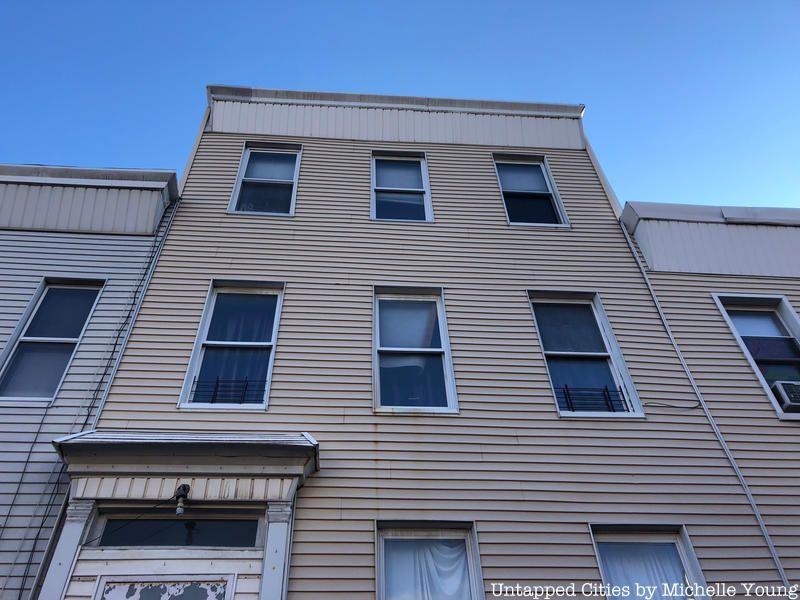
In partnership with The Coalition to Save Walt Whitman’s House, Untapped Cities is co-launching a prize to anyone who can find a picture, etching or painting of this block pre-1891 – something the preservation efforts have yet to uncover. Anyone who does will receive a one year membership to Untapped Cities Insiders, with all-free experiences to explore New York City’s most off-limits spaces and events from the city’s leading cultural institutions. Submit your findings to info@untappedcities.com.
Whitman lived on the second floor in the front of the house (a third floor was added in about 1891) and in addition to construction work, he pursued his literary dreams preparing for the publication of his book and doing freelance writing. “That to me is the core of it,” says Vogel, “Walt Whitman looked at Brooklyn and looked out at the world from that second story space. This is where he burst meteorically onto the scene as a poet.” Whitman would have walked frequently to the Rome Brothers printing shop in Brooklyn Heights where he had convinced them to print Leaves of Grass if he set the type himself.
Notable people also visited Whitman at 99 Ryerson Street, including Ralph Waldo Emerson, who sent a five page letter to this address which includes the line “I greet you at the beginning of a great career.” Emerson believed Whitman to be the first true American poet.
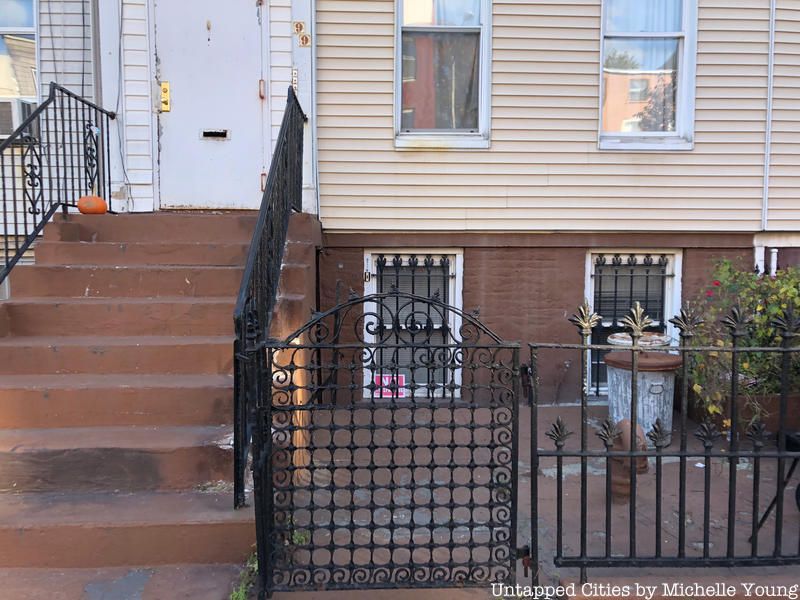
Vogel also points out that 99 Ryerson is also an important LGBT site, with Whitman, himself gay, as the first major poet to publish work that challenges the dominance of heteronormative thought. Sadly, there are few LGBT-connected landmarks in New York City, or around the country, due to the reliance on architectural merit as the basis of landmarking. Still, Vogel believes that it is likely that original architectural details remain below the façade, entranceway and cornice, which could be revealed in a restoration.
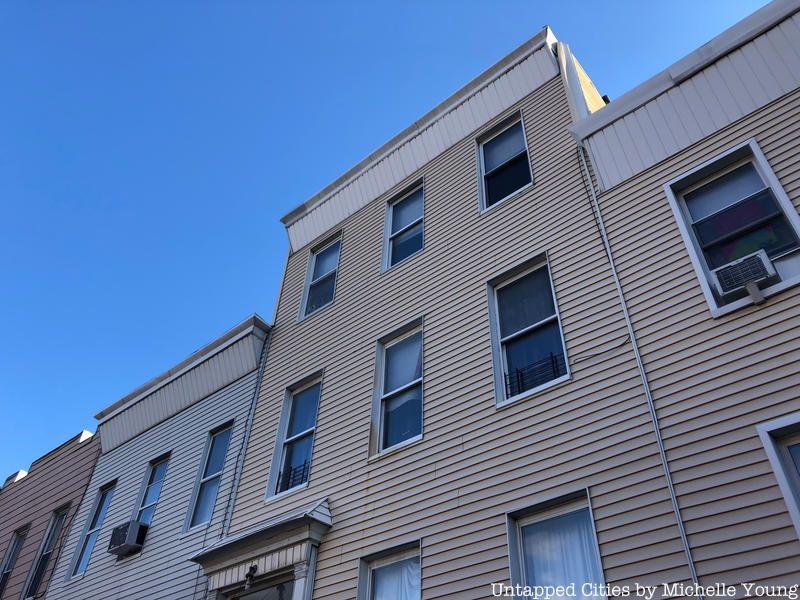
“The Landmarks Law is not just about a rigid architectural purity, it’s also about what are the things that matter to people. That is the real core of landmarking – what matters to the people in a city, what do they want to memorialize,” says Vogel. 99 Ryerson has in fact, become a larger part of the conversation about allowing for a more nuanced approach to city landmarking. As of publication, Vogel has submitted a 13-page rebuttal to the Landmarks Preservation Commission and continues to campaign for 99 Ryerson to become a landmark.
In 2016, when he learned about the existence of the home, he says he literally told himself, “I will kick myself if this houses gets demolished five years from now and I haven’t done anything to stop that…It’s an uphill battle but one that I think is worth fighting.”
And a reminder, if you have a photograph, aerial image, painting, etching, anything that shows this street before 1891, please email it to info@untappedcities.com. Anyone who does will receive a one year membership to Untapped Cities Insiders!


